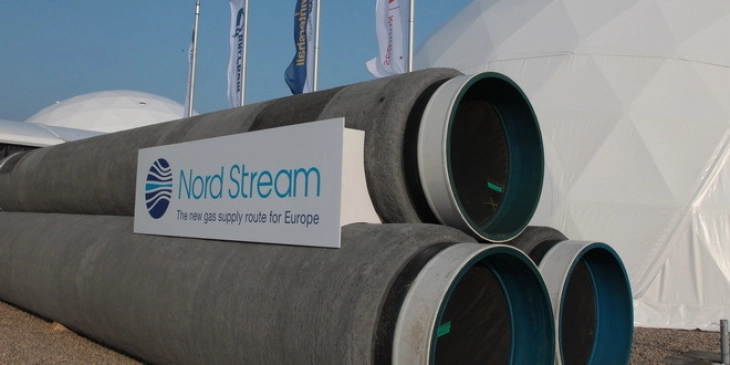Gazprom: Nord Stream 2 Baltic Sea gas pipeline completed

Moscow, 10 September 2021 (dpa/MIA) - The controversial Nord Stream 2 natural gas pipeline through the Baltic Sea, a source of dispute between Washington and Berlin for years, was completed on Friday, Russian company Gazprom said.
Gazprom executive board chairman Alexey Miller made the announcement in a company statement cited by Russia's state-run TASS news agency.
The last portion of pipe was laid on September 6. After that, individual sections of the 1,230-kilometre line were connected to one another, a process completed at 0545 GMT on Friday, the company said.
Nord Stream 2 is a twin pipeline system through the Baltic Sea, running from Vyborg, Russia to Europe's natural gas grid via a connection near Greifswald, Germany.
The Russian gas monopoly is expected to start deliveries to Germany through the new pipeline in October, using the the first strand that was completed in June.
However, certification from German authorities is still required to operate the line.
The construction began in 2018 and was due to finish in 2019. It was delayed by opposition from the United States, which views it as a geopolitical project of Russia. Washington imposed sanctions against some entities linked to the pipeline construction.
The US government has consistently criticized the project as making Europe too dependent on Russia for its energy supply, leading to particular tensions with Germany.
However, in July Washington and Berlin announced a deal in which they vowed to take measures should Russia attempt to use energy as a weapon or commit further aggressive acts against Ukraine.
The pipeline, which has construction costs estimated at 10 billion euros (11.8 billion dollars), is to deliver 55 billion cubic metres of gas per year from Russia under the Baltic Sea to Germany. According to the operating company, this can meet the needs of 26 million households.
Half of the pipeline was financed by the Russian energy giant Gazprom and half by the five European companies OMV, Wintershall Dea, Engie, Uniper and Shell.
Supporters of the pipeline in Europe say US criticism of the project is guided less by security fears than by concern over lost sales in Europe for American liquefied natural gas.







